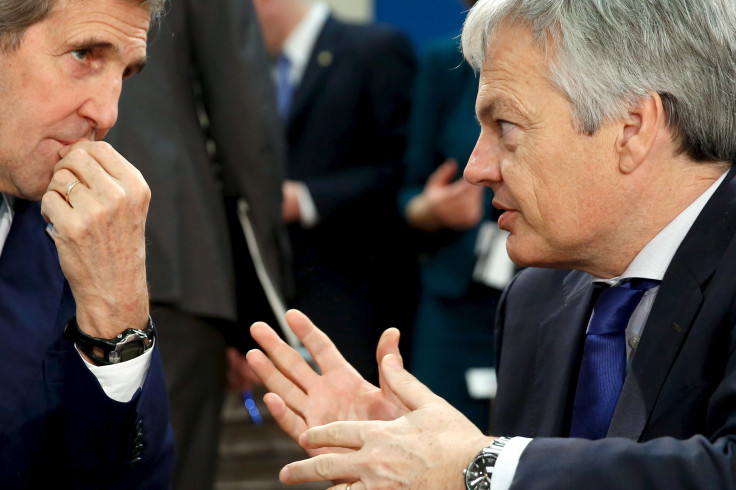Israel Snubs Meeting Belgium Foreign Minister Over EU Settlement Goods Policy

Relations between Belgium and Israel are on ice following a decision by Israeli Prime Minister Benjamin Netanyahu to refuse a meeting with Belgian Foreign Minister Didier Reynders, the Middle East Monitor reported Wednesday. Reynders was scheduled to arrive in Tel Aviv within the next week to engage in peace process talks.
But Netanyahu said the decision to cancel the meeting was prompted by Brussels’ plan to label all goods exported from Israeli settlements. The Belgian foreign ministry has decided to postpone Reynders’ visit indefinitely, the Monitor reported.
Israel’s foreign ministry had been instructed by Netanyahu to cease political communication with the European Union and its representatives, in light of a November EU policy announcement about the labeling of settlement products. Tel Aviv also canceled some ministerial and diplomatic meetings attended by the EU and Israel, along with subcommittee meetings on international organizations and human rights, a senior official told Israeli Radio.
An EU executive said Nov. 11 that agricultural and cosmetic products exported from Israeli settlements disputed by the Palestinians must be labeled with that distinction, rather than a generic “made in Israel” marking. The labeling policy would not cover fruits and vegetables, but wine, honey, eggs, olive oil and poultry have to be labeled, according to media reports.
Netanyahu and other Israeli politicians, who decried the move, said the labeling policy has an echo of Nazi Germany policies that branded European Jews and their storefronts with the yellow Star of David, the New York Times reported last month. Palestinian leaders welcomed the EU’s decision as a concrete action on the issue of illegal settlements in the occupied West Bank, the Golan Heights and East Jerusalem.
The special labels for settlement goods applies to less than 1 percent of Israel’s $13 billion in annual exports to the EU’s 28-nation bloc, according to the Times. The immediate economic impact was expected to be minimal, but there is concern that the policy is intended to punish businesses that operate or have affiliates in the occupied territories.
© Copyright IBTimes 2024. All rights reserved.






















